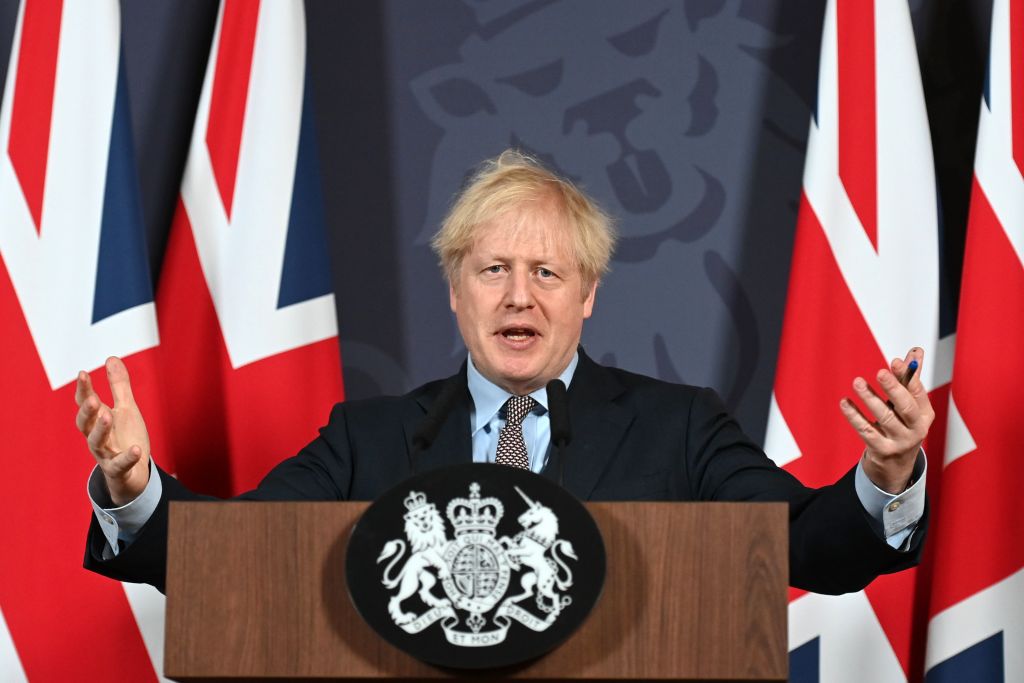The new UK/EU Treaty is needlessly long and turgid in its prose: this document was not drafted by people who think the law should be understood by all. Close inspection of the small print reveals that none of the details undermine sovereignty. It has been restored and the UK has the power to control its own laws.
To understand what’s happened, consider the last two big treaties. Under the Maastricht Treaty the EU’s ability to control UK law was extended on what came before but was confined to specific areas only. That was called ‘spheres of competence’. The 2007 Lisbon Treaty vastly expanded the EU’s power and the idea of restricting EU writ to areas of its competence fell away. Marina Wheeler has written in The Spectator about the Lisbon power grab and its huge implications: it’s worth re-reading for a sense of what Lord Frost was up against. And what he has successfully uprooted.
The Brexit deal takes things back to where they were before Maastricht. The EU is limited now in any meddling to very specific areas indeed. It ends the oddity where because circa seven per cent of UK business trade with the EU, 100 per cent have their laws made by the EU (although that is a bit more blurred in supply chains).
In the small print of the deal, the remnants of failed EU attempts to fetter British sovereignty can be seen. Consider the ‘precautionary approach’. This slides in via footnote 49, disguising itself in footnote 52. But by the time it gets in as actual law (article 1.2 page 179) it’s clear that it has lost the battle; its words have no force. British negotiators seem to have seen to that. As long as one side has a plausible scientific argument, it may do as it likes. There are other failed EU power grabs in the text, none carrying force.
There are parts of the deal that mean that, should Britain wish to diverge, then UK committees will have to talk to EU committees. Requiring the UK to ‘consult’ on implementation and change of the agreement etc. But how this is done in practice is left free and thus pretty non-enforceable and limited in scope. It is diplomacy now, not law.
Throughout the deal, we see several declarations of sovereignty. The first clause contains this commitment to:
‘peaceful relations based on cooperation, respectful of the Parties’ autonomy and sovereignty’
The treaty recognises the UK and EU are not harmonising their laws (making them the same). UK courts won’t bind the EU, EU courts won’t bind the UK. Neither UK/EU can make a law that would let anyone sue the other. So no campaign groups may form to sue the UK government under EU law for deviating from the treaty. The mechanism for doing so does not exist. Article COMPROV.13 makes it clear the UK and EU are equals under International Law. Whatever creature EU law is (this is still debated) it has gone from our legal system.
As for the ‘dispute mechanism’ – it mostly involves chatting. But wording suggests this is highly unlikely to be triggered. The Prime Minister gave an example: if Britain wants to increase standards on pig farms in a way that makes British bacon costlier relative to Danish, we could – in theory – trigger a dispute mechanism that could end in a UK tariff applied to imported bacon. But in practise: why bother? Why not let consumers choose?
This is just one example – public procurement rules look very technical. But in law you only have rights if you can enforce them. Given the likely divergences, there aren’t enough qualified arbitrators in the world to sit on all the potential disputes if these clauses are taken literally. You’d run out of lawyers if the EU and UK decide to throw the book at each other all the time. Anyone who thinks the EU/UK can fall out hundreds of times over small details or micro-manage the other, will run face first into that reality.
There are sections [Law Other 137, for example] involving ultimately pointless chest beating over the ECHR, fundamental freedoms and the rule of law. Pointless because these clauses will never be violated: neither the EU or UK are rogue states. We are friends, allies and equivalent partners trying to uphold democracy. The pantomime suggestions the UK would go rogue were, unhelpful, at best.
While there is a lot of hot air in the treaty, it does not go beyond that. Lord Frost and his team seem to have seen off the (no doubt many) attempts to get EU regulation in through the back door. The UK is leaving the European Union and the lunar orbit of its regulations. It depends on your politics whether you approve of concessions over fish and some aspects of trade. But the legal question – to take back control – has been accomplished.






Comments